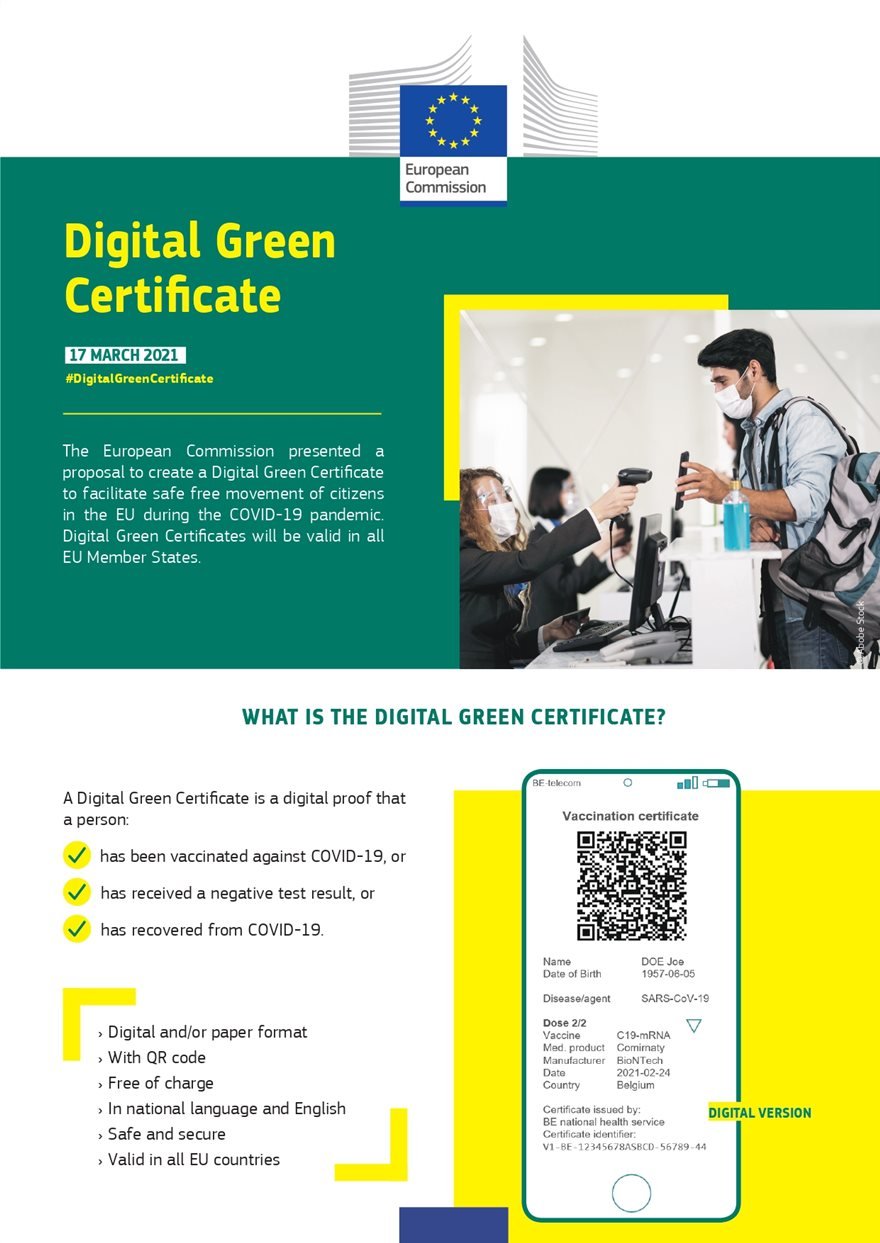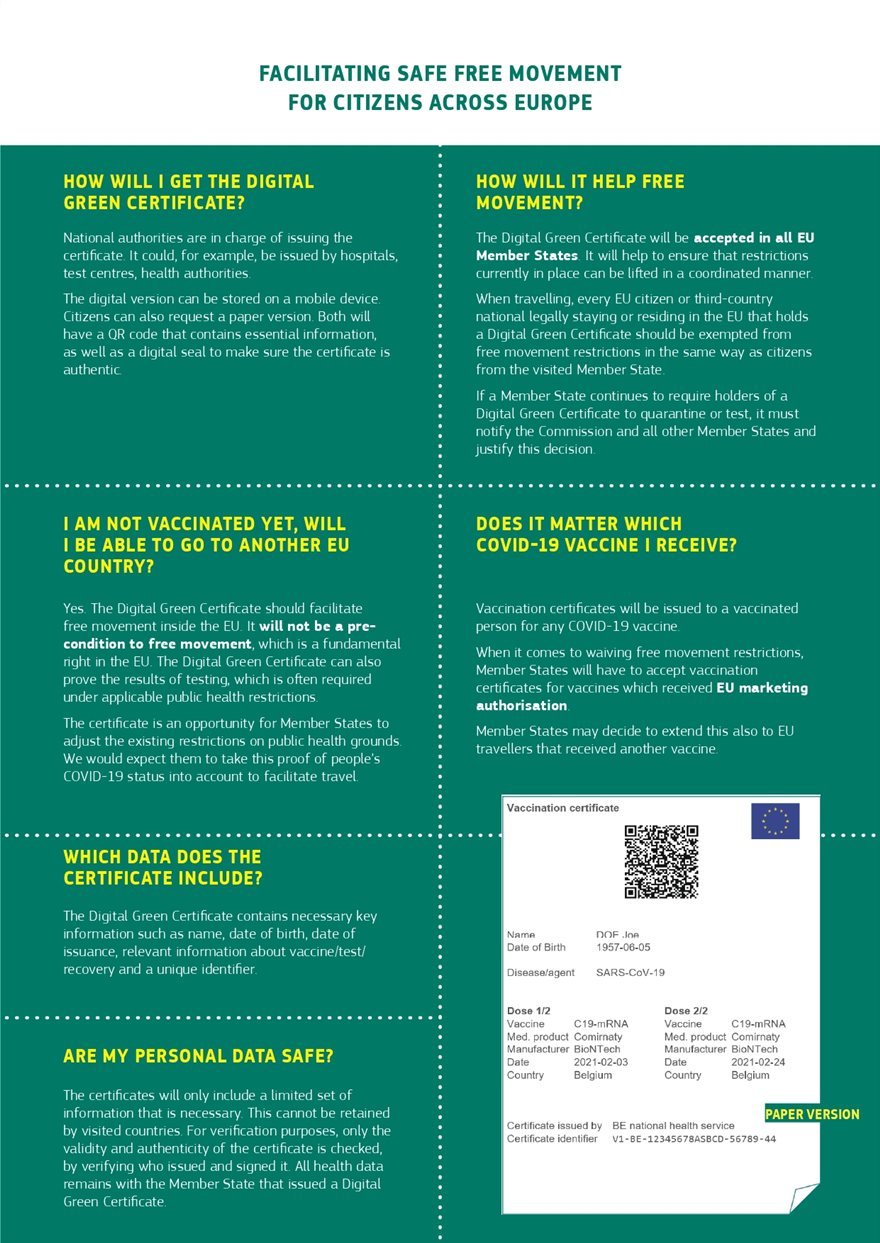The President of the European Commission Ursula von der Leyen announced the proposal of the executive body of the EU, so that Europeans can enjoy one of their most basic rights: Free movement within the EU, which has been limited by the measures imposed by the member state governments because of it COVID-19.
Today we strengthen the @EU_commission's response to # COVID19 with:
- Ursula von der Leyen (@vonderleyen) March 17, 2021
• Digital Green Certificates for free and safe movement in the EU
• A common path to a gradual, safe and lasting re-openinghttps://t.co/opAMGkeSNf

The proposal states the issuance of the green certificate. According to European officials, the green certificate does not introduce the obligation to vaccinate but the certification of the health status of Europeans traveling.
The certificate will be temporary and will no longer be needed when the World Health Organization officially announces the end of the pandemic.
The standard of the certificate will be in digital but also in printed version and bilingual: there will be the official language of the issuing state and in English, while it will cover three types of certificates - vaccination certificates, examination certificates (NAAT / RT-PCR test or rapid antigen test) as well as certificates for people who have recovered from COVID-19.

The certificates will contain a limited set of information, (name, date of birth, date of issue, vaccination – examination – recovery information and the unique identification code of the certificate). THE control of the data will only be used to confirm and verify the authenticity and validity of the certificates.
One point that has not been clarified with this certificate is whether EU Member States will receive vaccines other than those approved by the European Medicines Agency, such as Russia's Sputnik and China's Sinopharm.
Anyway we got a certificate for our good.





